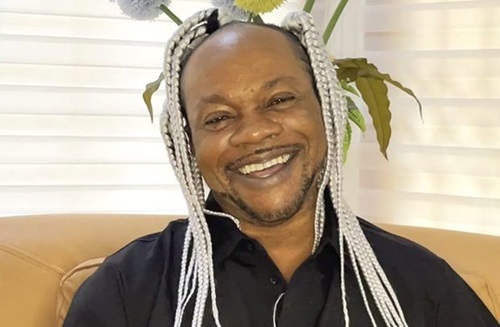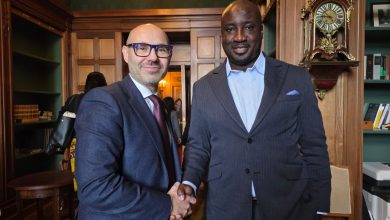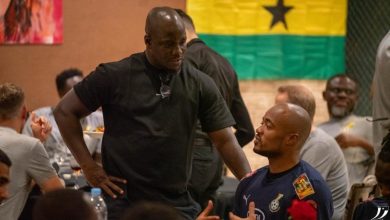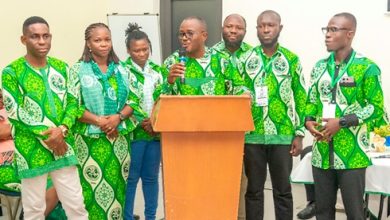Parliament calls for state-assisted burial for the highlife legend
Parliament eulogises Daddy Lumba and calls for state-assisted burial

Members of Parliament (MPs) yesterday paid glowing tribute to the late highlife legend, Charles Kwadwo Fosu, popularly known as Daddy Lumba, following his passing last Saturday.
Led by the Minority, the House described the late musician as a cultural icon whose influence transcended generations and whose work embodied the country’s musical and moral heritage.
The New Patriotic Party (NPP) MP for Manhyia North, Akwasi Konadu, in a statement on the floor of the House, said Daddy Lumba was not just a musician but a “torchbearer and trailblazer” whose songs were deeply rooted in proverbial wisdom, layered meanings and poetic mastery of the Akan language.
“His lyrics were not only melodious and catchy, but also laced with cultural idioms that required deep thought to unpack. His music was more than entertainment—it was an education in values, life, and our Ghanaian identity,” Mr Konadu said.
He mentioned Lumba’s unique ability to explore themes of love, betrayal, resilience, gratitude and humility across more than 30 albums and over 200 songs, many of which still received regular airplay.
The Manhyia North lawmaker also praised the artist’s contribution to national unity and identity, stating that his songs brought people together across age groups, political divides and ethnic lines.
The MP said Daddy Lumba’s influence extended beyond music, as he mentored many contemporary artistes and helped shape the modern Ghanaian sound, while remaining true to his roots.
Preserve
In a similar vein, the MP for Nsuta/Kwaman Beposo, Adelaide Ntim, called on Parliament and the government to honour the late musician with a state-assisted funeral and national awards in recognition of his enduring legacy.
“Daddy Lumba was more than a singer; he was a cultural icon. His music spanned generations, voiced the everyday experiences of Ghanaians, and left an indelible mark on our national consciousness,” she said.
She urged the state to establish initiatives that would preserve and promote his legacy for future generations.
“Mr Speaker, as we mourn, we also celebrate a life that touched millions. Let us remember Charles Kwadwo Fosu, not just with tears, but with pride for the gift he was to our nation.
May his soul rest in perfect peace,” Ms Ntim added.
Theresa
On the Majority side, the National Democratic Congress (NDC) MP for Okaikwei North, Theresa Lardi Awuni, joined her colleagues in paying tribute to the late highlife legend, describing his music as a message of hope and unity for the nation.
She stated that in her constituency, one of his most beloved songs, “Theresa”, was played at nearly every event — be it weddings, funerals or community gatherings — serving as a source of comfort and inspiration.
The MP expressed solidarity with the bereaved family and the people of Okaikwei North, stating that they mourn not just an artist but a national treasure.
She further urged her fellow MPs to emulate the values Daddy Lumba preached through his songs — genuine love, unity, and support for one another — adding that Parliament must work together sincerely, especially during the conduct of business in the House.
Lasting legacy
Daddy Lumba’s impact on Ghanaian music cannot be overstated.
With a career spanning over three decades, he released more than 30 albums and captivated audiences with timeless music.
His songs cut across generations and his legacy continues to inspire new artistes, with notable Highlife artistes such as K.K. Fosu, Ofori Amponsah, Kofi Nti and Kwabena Kwabena hailing him as their greatest inspiration.
Daddy Lumba was the first musician to win the ultimate award at the maiden Ghana Music Awards in 1999.
At the time, he won Most Popular Song of the Year (now, Artiste of the Year Category) with Aben Wo Ha.
A native of Nsuta in the Ashanti Region, he was born on September 29, 1964.
He started his music career at age 16 and became the leader of the then Juaben Secondary School Choir in 1983.
Daddy Lumba travelled to Germany after school to seek greener pastures, where he teamed up with Ernest Nana Acheampong to form the musical duo, Lumba Brothers.
They rose to fame with their debut album, Yɛɛya Aka Akwantuo Mu in 1989, which had popular songs such as Odo Fakye, Enko Ngya Me, Yenka Ntam, and Aban Nsa Aka Wo.
They, however, went their separate ways, and in 1990, Daddy Lumba released his solo album Obi Ato Meso Boɔ, and followed it with another banger-laden album, Sika Asɛm in 1991.
Daddy Lumba is credited with over 30 albums, which span themes of love, death, beauty, life and the gospel of salvation.
In September last year, Daddy Lumba marked his 60th birthday with a concert, where he revealed it was the first time he was celebrating his birthday.
In his words, “Since 1964, I have never celebrated my birthday, and I know it will surprise many, but that’s the truth.
But at this moment in my life, all that I have been through and what people have said about me, the Lord has protected me to celebrate the landmark 60 years, which is not easy to achieve.
“I thank God and all my loved ones who pray for me always.
The Lord listened to your prayers. I’m grateful to God that I get to celebrate this day in peace, life and good health”.



